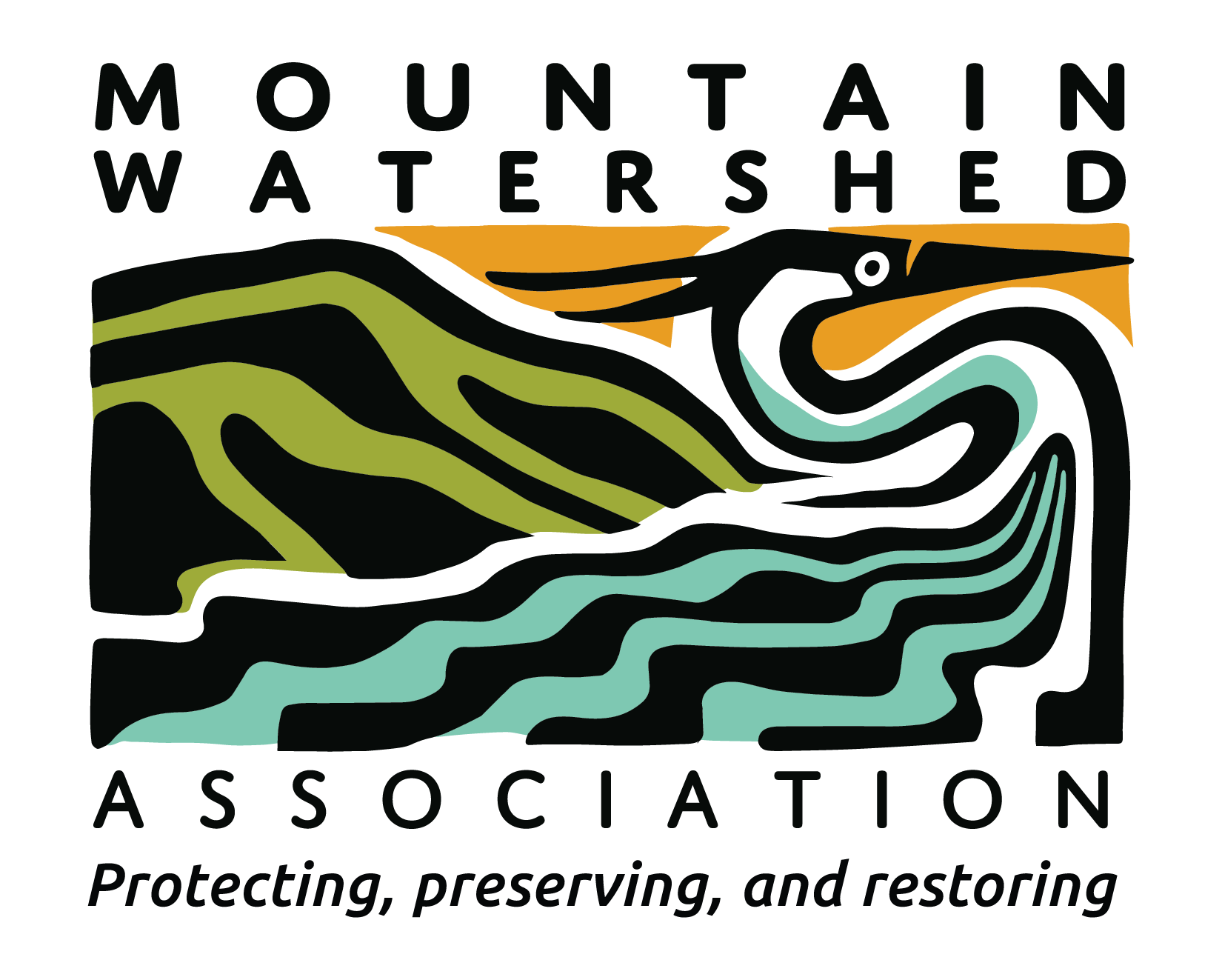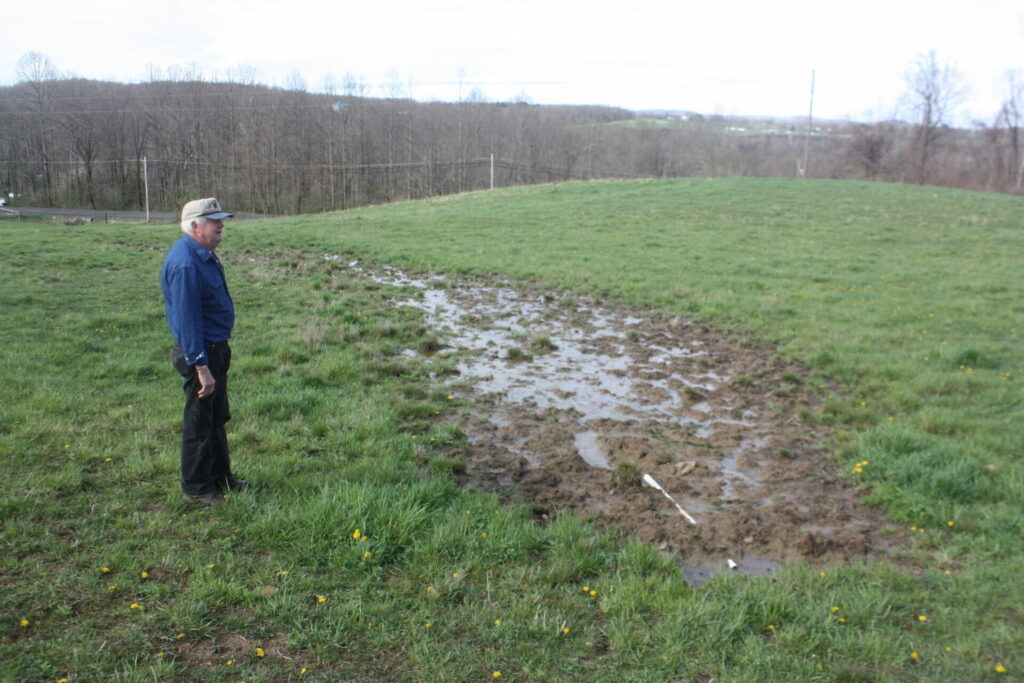As part of our outreach efforts, Mountain Watershed Association regularly connects with local residents who have been impacted by shale gas development. In Luzerne Township, Fayette County, Brent Broadwater at Hidden Acres Farm has been experiencing first-hand why oil and gas development is not compatible with the agricultural way of life that many depend on in our region. Brent shared his story with us, which you can read below:
“My name is Brent Broadwater, and my wife Wanda and I own and operate a 300+ acre angus beef farm in Luzerne Township, Fayette County. Wanda and I have farmed our entire lives, and since we are both in our 60’s, we understand the right and wrong way to operate a farm. We have experienced enough to know when there is a problem with our animals.
In 2010, Chevron Appalachia drilled a shale gas well on our farm after National Mines, who owns the mineral rights, leased to them. They completed all back filling and fracking around the well, and afterwards, a seep appeared at the bottom of the slope on the well’s south side. I was deeply concerned right away about the safety of my herd, as the gas well was in the area of pasture in which we raise our yearling heifers. However, after they tested the seep, I was assured by the Department of Environmental Protection (DEP) and Chevron that there were no problems with the water. They said there was nothing in their sample that could hurt our animals, and I believed them. I continued to let my herd graze and drink in the area.
I began to have problems with my herd almost immediately. The first two to three years after the well was drilled, only half of my yearling heifers were pregnant, which is very unusual. When I brought this to Chevron’s attention, they stated that there was nothing wrong with the pasture and simply blamed it on my bull. I erroneously believed that and bought a new bull, but my heifers were still having problems breeding. Finally, I decided to stop using the pasture near the well, and only then did I see an increase in births.
However, to this day, all of the cows that ever grazed in the pasture with the seepage have below average breeding rates and infertility issues. This year alone, I had three cows that were initially confirmed pregnant by the vet but then never birthed, as well as four stillborn calves. Yet, I have no issues whatsoever with my older cows that never used the pasture by the gas well.
I am by no means a water expert, but I decided to take my own samples and have them tested by a DEP certified lab. The samples all contained strontium and high levels of total dissolved solids. Also, below the seep, all of the grass is dead for over 300 feet. My own veterinarian, who services my herd, stated that whatever is killing the grass cannot be good for my cows, since it is their main source of food.
I have no doubt that this seep is a direct result of Chevron’s gas well. Being a reputable company, I believed they would take care of this problem, but all I get is excuses from them. I have given them several options to remedy the problem, but they tell me that there is no money left to address the issue, and anyone I talk to says “I am no longer in charge of that”. Yet, their well on my property is still producing gas.
My livelihood as a small, independent farmer is compromised when my heifers are unable to produce offspring and continue the herd year after year. All I want is to be able to use our pasture again, as it is a valuable resource to my farm that cannot be replaced. At this time, I’m not sure what the resolution will be, but I am sure that Chevron should take responsibility for fixing their problems – a problem that has continued to cause me and my family hardship over the past several years.”


